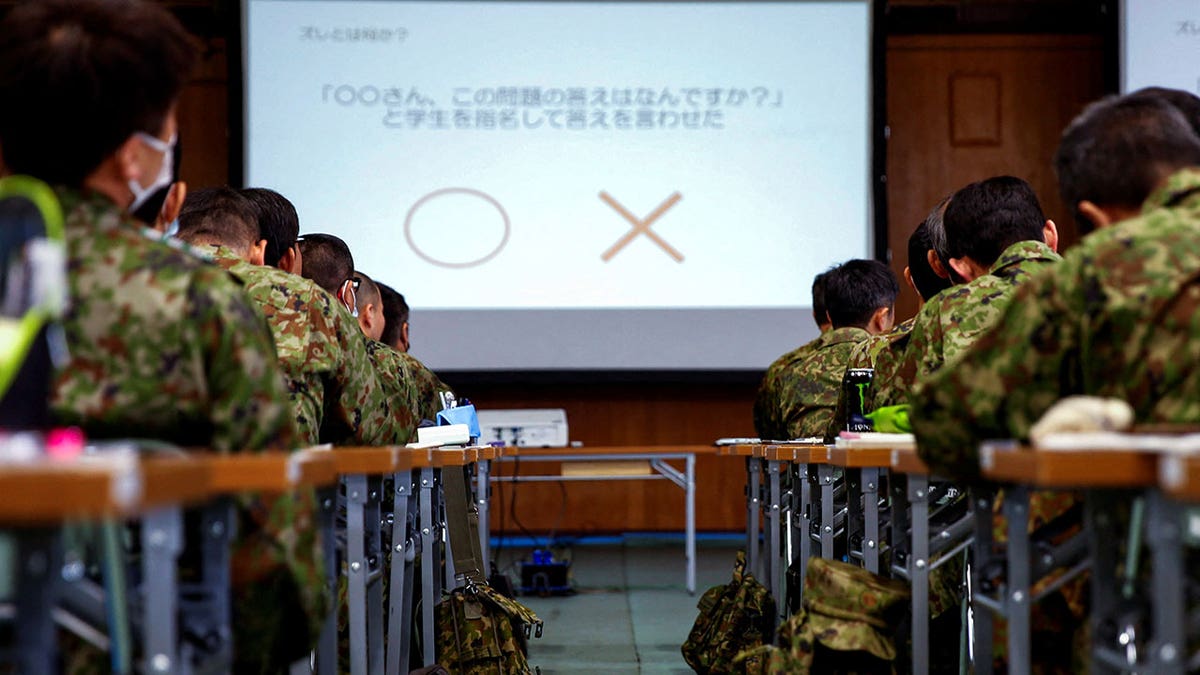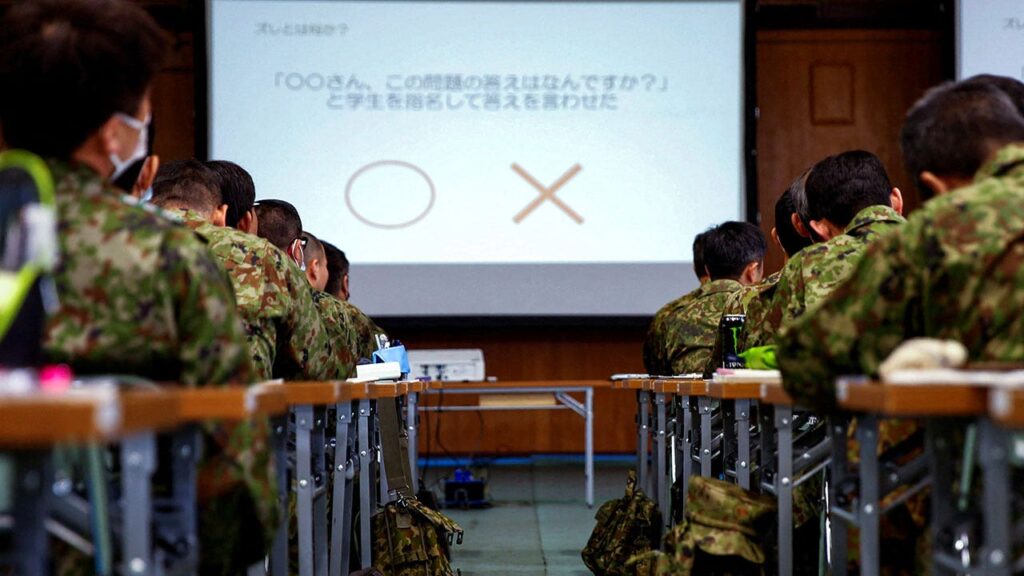- Despite its commitment to increasing the number of women, Japan’s military still faces challenges in recruiting women.
- Incidents of sexual harassment have led to a decrease in the number of women enlisting in the Self-Defense Forces.
- Only 9% of Japanese military personnel are women, compared with 17% in the United States.
As Japan embarks on a massive military buildup, it is struggling to recruit the women its military needs, and its policymakers have pledged to recruit women.
The number of women applying to join the Self-Defense Forces (SDF) fell by 12% in the year to March 2023 after several years of steady growth following a wave of sexual harassment cases. Some victims say an entrenched culture of harassment may prevent women from signing up.
But nine months after the Defense Department pledged to take tough measures, it has no plans to act on a key recommendation from an independent panel of experts — to implement a national anti-harassment training standards review system for training, according to two defense officials responsible. .
US ambassador praises Japan’s military reforms, allows export of Patriot missiles
A government-appointed panel of experts cited in a report released in August that the military’s superficial harassment education, with only limited mention of sexual harassment, and a lack of centralized oversight of such training as contributing factors to cultural problems within the agency.

On April 16, 2024, Japanese Ground Self-Defense Force soldiers participated in a harassment prevention seminar at the Japan Ground Self-Defense Force Asaka Camp in Tokyo, Japan. (Reuters/Sakura Murakami)
The head of the team, Makoto Tadaki, said some training sessions – one of which Reuters attended – were inconsistent with the seriousness of the situation.
A female soldier who sued the government for alleged sexual harassment also said in an interview that the education she received in the past 10 years was ineffective.
There are calls to eradicate harassment and increase the number of female service members as an aging Japan faces growing threats from China, North Korea and Russia and deals with a heavy burden from wartime.
In Japan, only 9% of military personnel are female, compared with 17% in the United States, Tokyo’s main security ally.
Japan calls for tighter security measures after video of warship drone posted on Chinese social media
The SDF referred Reuters’ questions to the Defense Ministry, which said in an emailed response that harassment “can never be allowed as it destroys mutual trust between military personnel and weakens their strength”.
The ministry said it has been running harassment prevention lectures by external experts since 2023, making the curriculum more discussion-based, and plans to invite experts to review its training this year.
It did not answer a question about whether the panel’s recommendations for centralized supervisory training would be implemented.
In 2022, after former soldier Rina Gonoi made public sexual assault accusations, the Ministry of Defense conducted an investigation that year and found more than 170 alleged incidents of sexual harassment within the Self-Defense Forces.
Another alleged victim was a female service member stationed in Okinawa who in 2013 accused a senior of making lewd remarks to her. Public roll call. The alleged perpetrator was not identified in the information.
Reuters did not name the alleged sexual harassment victim. Her accusations were corroborated by documents in a lawsuit she filed last year, after she said she had exhausted the internal complaints process.
Training at will
The Department of Defense provides an annual online module on general harassment. It also provides training materials for in-person classes to officers but does not provide training on harassment education and does not track how or when officers conduct harassment training, two defense officials said.
The officials, who spoke on condition of anonymity because of the sensitivity of the matter, said the existing system provides commanders with flexibility.
Six experts concluded in the review that existing training amounts to “generic, superficial statements” that “do not effectively help people apply training in the real world”.
In April, Reuters attended a harassment prevention course conducted by an outside instructor for more than 100 mid-level officers at a base outside Tokyo.
Instructor Keiko Yoshimoto looked at harassment as a communication issue and focused on how generational differences and their preferences for car types and potato chip flavors come into play.
“Generational differences make it difficult for people to communicate,” she said, adding that people should understand the basics of communication before they can deal with the details of sexual harassment.
Law professor Tadagi, who witnessed part of Yoshimoto’s meeting alone, said “it was not the kind of training you would expect in the context of so many harassment cases.”
More time may be needed to strengthen oversight of the quality of training, he added.
Two months after the panel released its report, local media reported that a sailor in 2022 was ordered against her will to meet with a superior she accused of sexual harassment. She later quit the SDF.
Gonoy and female military personnel stationed in Okinawa criticized the system as inadequate.
“People will say ‘everyone puts up with this behavior, it was normal in our time’ – but these problems are being passed on to our generation because nothing is being done to stop it,” the female soldier said in March told Reuters.
She added that the harassment training she has since received was often poorly conducted and required more intensive supervision: “Instead of trying to articulate the issue of sexual harassment,[officers]chose material that was easy to teach, something that would fit the time they had. .
fear of complaining
Defense Department officials said sexual harassment training occurs primarily within broader anti-harassment courses. About two minutes of the two-hour training session attended by Reuters was devoted to the issue of sexual harassment.
When Reuters asked these officers and two senior uniformed officers about sexual harassment in interviews, they responded that it was sexual harassment in general.
Click here to get the Fox News app
Officials say providing standardized harassment training is challenging because service members in high-stress environments may give orders in a direct manner that is unusual in other situations.
The two officers said there were concerns within the military that too much focus on harassment could create operational problems, and one said it could lead to unfair complaints.
The Defense Department said in a statement that it would not tolerate abuse and that its training was designed to ensure commanders were not “hesitant to provide necessary guidance on the job due to concerns about harassment.”
Professor Tadaki said Japan could learn from other militaries.
“The US, UK and France have a clearer focus on preventing harassment at its root causes, so their prevention programs are built around improving the internal climate and culture of the organisation,” he said.

